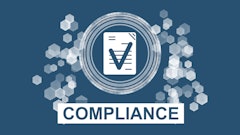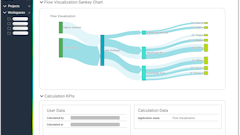By Andrew K. Reese
General Motors Corp. has been the annual global sales leader in the industry for 77 years, but in the decade ahead the company will be looking to the global market for a significant share of its growth. CEO Rick Wagoner believes that the company could see as much 75 percent of its car and truck sales outside the U.S. market in the next 10 years.
Andi Karaboutis’ charge is to deploy and manage the technology that will enable the global supply chain needed to support those sales. Karaboutis is process information officer (PIO) at GM, running Global Purchasing and Supply Chain Information Systems at the world’s largest automaker. Her team manages about 300 different systems, through which pass more than $100 billion in direct and indirect spend.
Karaboutis' organization currently is engaged in a range of projects to support GM's increasingly global supply chain, including:
Capacity control. GM is moving to global vehicle platforms, and its suppliers are serving multiple plants and locations. GM must ensure that the material releases and schedules it is sending to these suppliers are within capacity. Sounds simple enough, until you consider that GM has been operating on a more regional model. "We've had capacity management systems, but this is taking it to the global level," Karaboutis says. "Now we need to take feeds from various regions to understand what suppliers have been tooled for and what our releases look like coming out of the various regions, stacking those up against each other and making sure that we're releasing or asking for material that's within range." GM has done a first release of that system.
Total landed cost initiative. Global sourcing requires a global perspective on total cost of ownership, Karaboutis says. "When you start throwing the net across the globe as far as where you're going to source material, you need to start taking into account tariff management, port charges, even more intelligent decision making around transportation, because it becomes a much bigger part of the cost equation now that you're sourcing globally." GM currently is developing a tool to automate this process and is nearing a first release.
Global supply-demand alignment. Previously GM had separate regional production planning and scheduling organizations in North America, Europe, Latin America, Africa, the Middle East and Asia-Pacific, each planning vehicle supply to meet demand regionally. Now, moving to global production scheduling, GM needs to align supply and demand globally. To do this, Karaboutis and her team must find ways to pull data out of separate regional systems to provide information in as close to real time as possible so that planners can make quick decisions around supply, demand, and global production management and scheduling, and also do "what-if" scenarios. "The closer to real time we can get on all of that, the more transparency and visibility we can give to the suppliers and our production facilities, the more successful we will be as an IT group in helping the company really match supply to demand globally," Karaboutis says. "Again, it sounds simple, but it's really very complex." This project is still a work-in-progress at GM.
What keeps Karaboutis up at night? Timing. "The business changes much faster than I can stay up to speed with in technology, so one of the biggest challenges I've got is: how do we address the business change quicker?" Because IT solutions can take anywhere from 18 months to three years to catch up with a business process change, Karaboutis says she tackles projects in "chunks," keeping system deliveries in small enough pieces so that she is delivering value in lockstep with the changes that the business is making, allowing the business to validate that a project is meeting its needs.
The automotive industry may be facing some of its toughest times in decades, but that hasn't dampened Karaboutis' enthusiasm for her job. "I'm excited to get up and come to work every day, despite the challenges in the industry," Karaboutis says. "The supply chain has to be lean, fast and visible, and what really is exciting to me is that, from a technological perspective, coming up with a great supply chain capability that will address all three of those is just a tremendous opportunity."



























